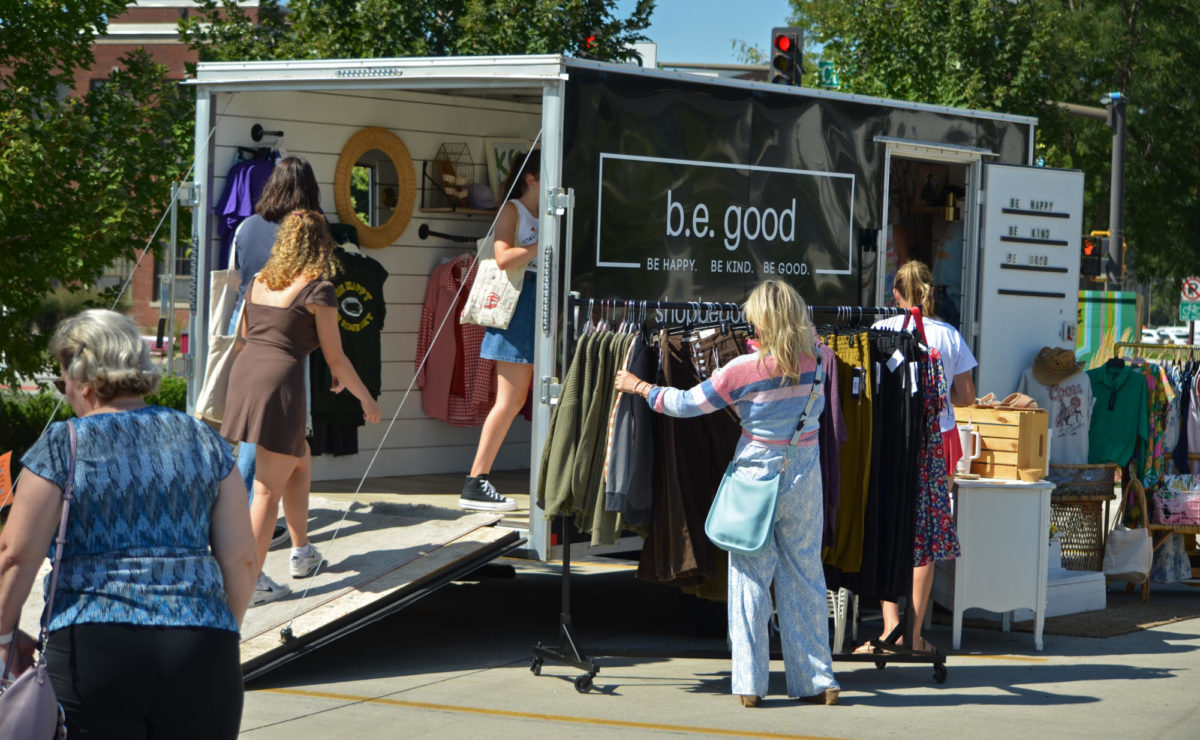ISU police academy offered to Ames Community
February 12, 2016
Anthony Greiter, community outreach officer with ISU Police, remembers his first time answering a 911 call quite vividly.
He was a dispatcher at the time, and a woman called to report that the toilet in her apartment was clogged and overflowing. He looked over at his trainer and said, “Are you kidding me?”
His trainer’s response: “Welcome to Campus Law Enforcement.”
The ISU Police Department, which consists of 35 certified police officers who commit to around-the-clock service on campus, does anything from getting into witty Twitter fights with the Iowa Campus Police, all the way to criminal investigations and threat assessments.
“Especially as university police officers, we cover a variety of topics,” Greiter said. “We wear a number of different hats.”
On top of it all, the ISU Police Department annually offers an eight-week course in the spring known as the Citizen Police Academy (CPA).
The first session of the CPA began 6 p.m. Thursday with about 12 participants total — a mixture of students, faculty and staff.
“The ISU Citizen Police Academy is a great opportunity to learn more about law enforcement and the police department here at Iowa State,” the CPA website states.
The academy seeks to inform participants about what life on the beat is like and offers a small glimpse on what law enforcement is all about. This includes driving in a police car, executing a search warrant, firearms training, use of force and more.
“In order to give people a real idea of what we do as police officers and all the different aspects of our job, I try to bring in all the experts from all those differents areas,” Greiter said.
For instance, when discussing firearms, the firearms instructor will come in and speak. When the academy goes over alcohol education, police officers who patrol at night will come in.
Greiter said that to decide on what to teach, he looks at what has been popular in past police academies and what people have most enjoyed and then compares that to some of the core things that they teach officers in training.
As to why citizens join the academy to begin with, Greiter accredits the answer to two different sorts of groups: those who are seeking to go into law enforcement as a career and those who have a general curiosity.
“There are kind of two camps — one group is the students that want to be involved in law enforcement and they want to see a more in-depth view of what we do,” Greiter said. “Then there’s also the group that doesn’t know what we do, or thinks they know what we do, but wants a better understanding.”
Greiter said whether they’re curious in a positive sense or curious in a negative sense, it doesn’t matter to him.
“I want people to know what we do,” he said.
Lt. Elliot Florer, community outreach, has been leading the program since 2006.
“We wanted to find a way that our department could give back to our community,” Florer said. “I think the biggest question that we got and still get in law enforcement is ‘What is your job really like?’”
He said that hopefully when people go through the academy it’s a positive interaction for everybody involved. Creating an open dialogue between both the officers and the community, Florer said he believes the academy might even benefit the officers involved more than the participants.
During the first class, Aaron DeLashmutt, interim chief of ISU police, discussed a department overview as class participants munched on Great Plains pizza and cookies.
He said he wants everyone to feel comfortable during the class and hoped everyone would respect one another but still share their opinions and add to the discussions during the academy.
Andrew Starcevic, senior in industrial technology, is one of the participants in the academy. This will be his third police academy and he said is looking forward to seeing more of the campus side of law enforcement.
“It’s not only just exposing the community to what the life of a police officer is, but it also helps build those community relationship,” Starcevic said.
He said he believes Thursday night was a very good learning experience and it was a good door opener to many questions people had that they wanted to get out.
***
Over the course of the next eight weeks, as the new police reporter, I will be participating in the class and learning alongside the other students, faculty and staff taking the course.
Some are doing it because they are pursuing law enforcement as a career, and others are doing it so they can ask the questions they haven’t been able to find answers to. Others are doing it so they can feel safer in their community.
I’m hoping to extend the dialogue and discussions outside of the conference room in the Armory that the CPA is held in and to immerse myself in what the academy hopes to teach.
















